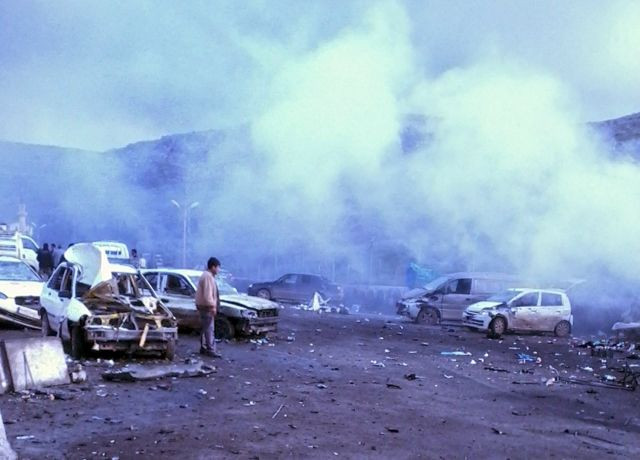Syrian Rebels Seize Control Of Country’s Largest Dam; Minibus Explosion Near Turkish Border Kills 13

Syrian rebels captured the nation’s biggest hydro-electric dam Monday, a seizure touted as one of their major strategic victories in the two years of internal conflict.
The rebels, who guard the dam's entrances and exits in Raqa province, have seized control of much of the water flow in the country’s north and east, raising fears that any oversight in managing the functioning of the dam could drown large areas within the country and in neighboring Iraq, the Associated Press reported.
However, the seizure of the Al-Furat dam, also known as Taqba, built on the Euphrates river in the late 1960s, may have limited impact on already unreliable power supplies, according to a Reuters report.
The rebels, who took control of the dam, set ablaze a giant statue of late President Hafez Assad, the current president's father.
An amateur footage released by the activists showed the rebels walking through large operations rooms as employees went on with their work as usual. The AP stated that the video appeared genuine and corresponded to its reporting on the seizure of the dam.
Meanwhile, on the Syria-Turkey border, a minibus exploded, killing at least 10 Syrians and three Turkish nationals. Turkish officials said it was unclear whether the blast was a suicide attack or an accident, the BBC reported.
The explosion occurred near the Cilvegozu customs post on the Turkish side of the border in the southern province of Hatay. It is one of the main crossing points for the Syrian refugees to enter Turkey and lies opposite to the Syrian border post of Bab Al-Hawa that has seen violent clashes in recent months.
Syrian President Bashar al-Assad stressed Monday that his government would not submit to pressure or “plots” against it, state-run SANA news agency reported.
"Syria will remain the beating heart of the Arab world and will not give up its principles despite the intensifying pressure and diversifying plots not only targeting Syria, but all Arabs," Assad said at a meeting with a Jordanian delegation in Damascus, according to SANA.
The statement closely followed Syrian opposition leader Moaz Al-Khatib’s remarks Monday that the regime’s rejection of his negotiation proposition, which was accompanied by an offer for President Bashar Al-Assad’s peaceful exit, sent a “very negative” message to the world.
In a statement on his Facebook page, Khatib, the newly-elected head of the Syrian National Coalition, said the regime had "lost a chance to engage in a dialogue" to end the two-year conflict.
The Assad regime had said it was open to dialogues with the opposition, but without pre-conditions.
© Copyright IBTimes 2024. All rights reserved.






















